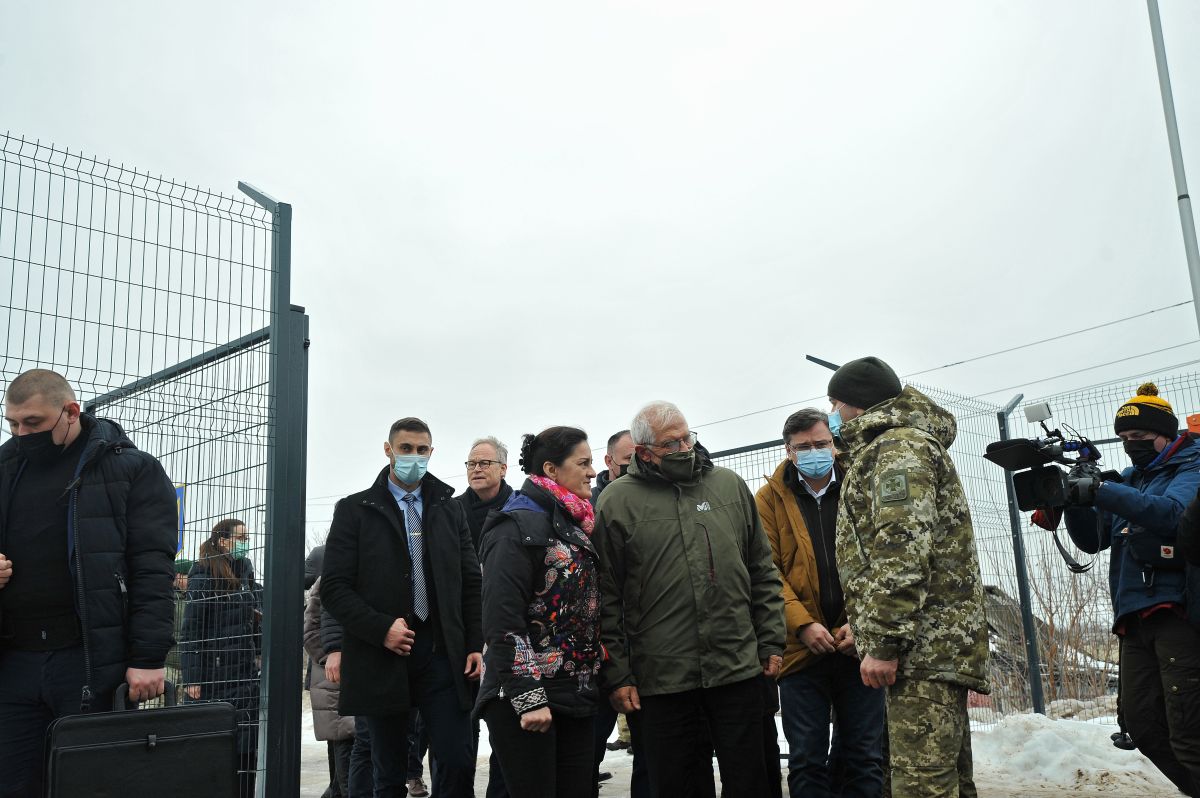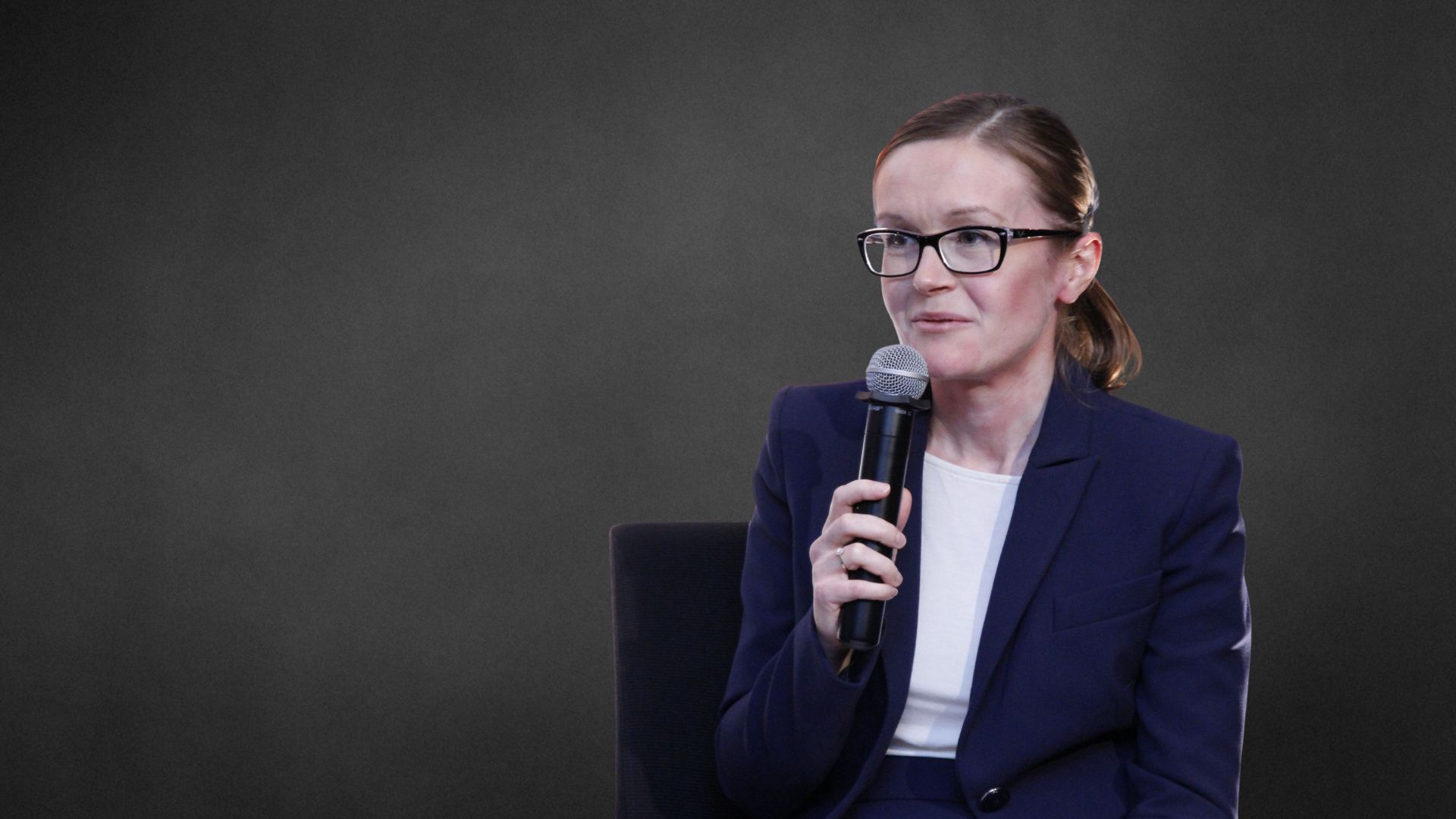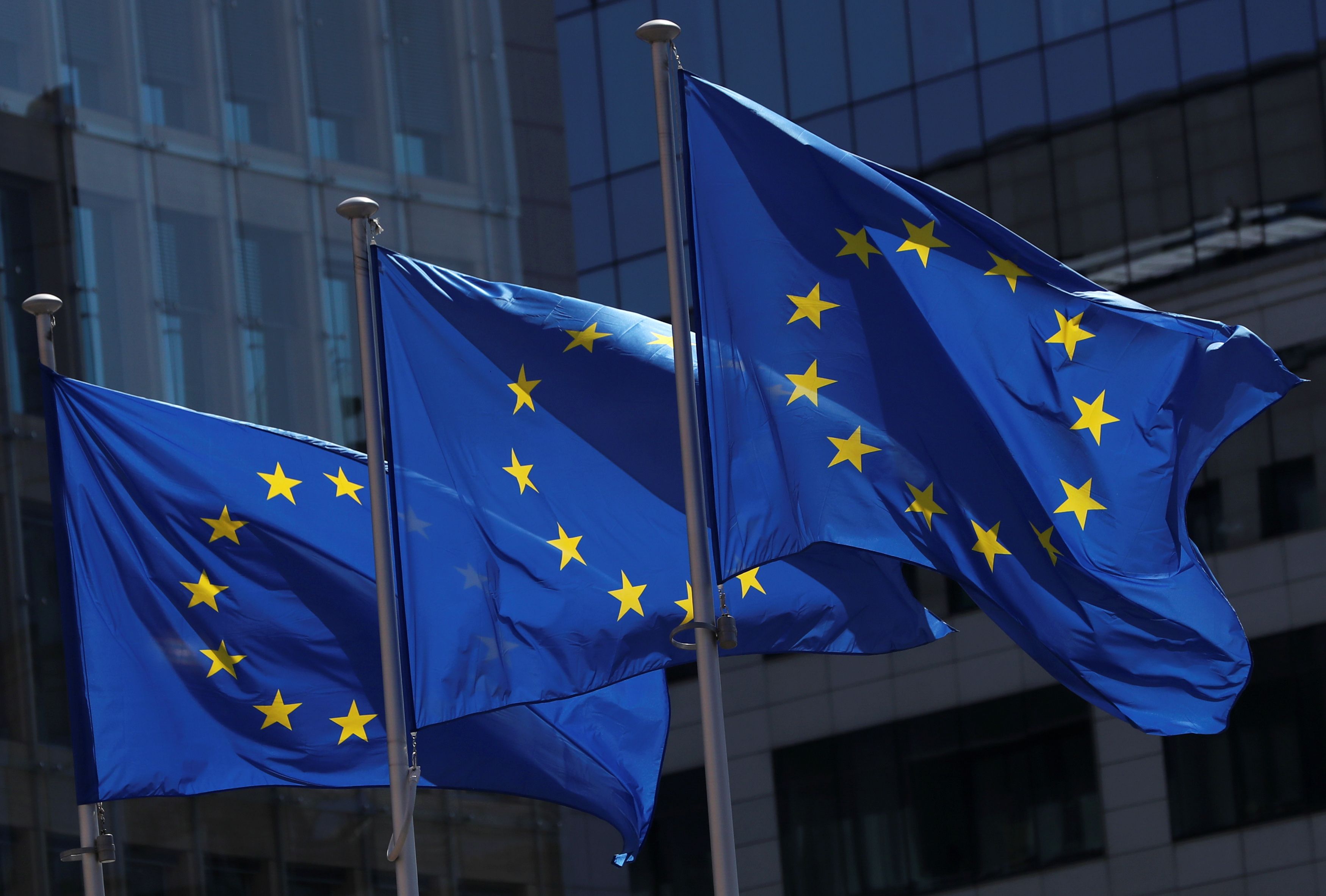The EU's Response to the Russia-Ukraine Crisis
The EU’s reaction to Russia’s military build-up along the Ukrainian border has been limited even though the escalation poses a challenge and a threat to European security. France and Germany have been trying to reactivate the Normandy Format, and the EU is supporting Ukraine through financial assistance, including in the field of civilian security. To strengthen its position, the EU should warn Russia that it may introduce financial sanctions that could affect Russian banks, among others, and halt Nord Stream 2.
 Fot. Zuma Press/ Oleksii Kovalov/ FORUM
Fot. Zuma Press/ Oleksii Kovalov/ FORUM
The EU position on the concentration of Russian troops along the Ukrainian border was adopted during the European Council in December 2021 and detailed at the Foreign Affairs Council in January this year. The Member States condemned Russia’s actions and reiterated their full support for the sovereignty and territorial integrity of Ukraine. They emphasised that they favour de-escalation of tensions through diplomacy and agreed on the adoption of sanctions in the event of any further military aggression by Russia against Ukraine.
Financial Support
To increase Ukraine’s ability to withstand the Russian pressure, the EU will provide it with an additional long-term and low-interest loan of €1.2 billion, as well as €120 million in subsidies. The Union remains the largest donor of development aid to this country. In 2014-2019, the European Commission transferred to Ukraine annually on average about €270 million in subsidies, and in the years 2014-2021, its government received €5 billion in loans from the EU.
The Union has increased its support for Ukraine in the field of civilian security. In December 2021, it earmarked €31 million from the European Peace Facility to finance medical, engineering, mobile and logistics, and cyber units of the armed forces. High Representative Josep Borrell declared in January the possibility of organising two missions to help Ukraine in combating cyberattacks and to reform military education. Member States are negotiating the scope of such support, but some states, for example, Germany, Italy, Greece, and Cyprus, are against the establishment of a military mission. Since 2014, the German authorities have consistently blocked the development of hard security cooperation with Ukraine, arguing that it would escalate relations with Russia.
Some Member States are helping Ukraine militarily in the scope of bilateral and trilateral relations, for example, the Lithuanian-Polish-Ukrainian brigade established in 2014. However, even then they have different practices regarding supplying Ukraine with weapons. Germany does not sell it arms and does not grant permission to other countries to export equipment manufactured on its territory. In turn, other states, including Bulgaria, Czechia, the Baltic states, and Poland have authorised the sale of and/or granted military aid to Ukraine. Lithuania and Latvia provide Ukraine with Stinger anti-aircraft missiles, and Estonia sends it Javelin anti-tank missiles. Poland and Lithuania train Ukrainian armed forces as part of the Joint International Training Group-Ukraine in Jaworów near Lviv.
Diplomatic Activity
The role of the EU in solving the crisis has been marginalised. Due to the position of the Russian authorities, the main talks are held between Russia, the U.S., and NATO. The EU is coordinating its action with the U.S., and the High Representative is responsible for the ongoing exchange of information. In January, a videoconference was held with the participation of the heads of state and government of the U.S., UK, Germany, France, Italy, Spain, and Poland, as well as with the representatives of EU and NATO institutions. Although the EU and the U.S. are trying to present a united position, there are some differences. The U.S. and the UK decided to partially reduce their staff in Ukraine for security reasons, but the EU has not taken similar action. The French president, in turn, postulated that the EU should build a collective security order in Europe and, in consultation with NATO, present its own demands towards Russia and ensure they are met.
France and Germany have made diplomatic efforts to reactivate the negotiations between Russia and Ukraine in the Normandy Format. German Foreign Minister Annalena Baerbock met her counterpart Sergey Lavrov in Moscow and stated that if the conflict escalated, Russia would bear high economic costs. In January, a meeting of the Normandy Format took place at the level of political advisers in Paris, and the next one will be held in Berlin in February. However, it has yielded minor results. The parties only reaffirmed that the Minsk Agreements are the basis of the negotiations and again committed themselves to respecting the ceasefire in Donbas. Russia indicated conditions for a Normandy Format high-level summit that are unacceptable to Ukraine, such as special legal status for Donbas and holding local elections..
Sanctions
Although the talks between the EU and the U.S. on possible sanctions are classified, the American administration stated that in the event of further Russia aggression against Ukraine, it would, together with the EU and its allies, impose financial sanctions. Such restrictions would lead to an outflow of foreign capital from Russia, increase the costs of loans, and lead to a severe depreciation of the rouble, which would significantly weaken the Russian economy. It is also possible they may limit the export of technologies designed and manufactured in the West that could contribute to strengthening the Russian military potential (artificial intelligence, quantum computing, laser and sensor production). Contingency plans are being prepared in the event Russia suspends gas and/or oil supplies to the EU or damages Ukrainian energy infrastructure. Talks are also underway with major gas producers on the possibility of increasing supplies to the EU.
The EU has not warned Russia what concrete restrictions it may apply. Member States are still discussing the scope of them and in which situations they might be mobilised. On 4 February, the president of the European Commission stated in a press interview that the EU may introduce financial sanctions, limit the export of technologies, and did not rule out the possibility of stopping Nord Stream 2. The EU measures may differ from the American ones in the details, like the EU economic sanctions in 2014. The most important position will be Germany’s because of the scale of its economic ties with Russia and its leadership in setting the course so far of the EU’s eastern policy. In 2014, the efforts of Chancellor Angela Merkel led to the quick adoption of restrictions by the EU and induced Member States Italy and Hungary, among others, to support them. It is doubtful whether the current coalition government in Germany can play a similar role as it remains divided over its policy towards Russia, including the issue of the possible threat to block Nord Stream 2 as a tool of pressure. The Greens want Germany to withdraw from the investment, while the SPD still supports it. German Chancellor Olaf Scholz has stated that any discussion on stopping Nord Stream 2 or cutting off Russia from the SWIFT banking system will take place only in the event of further Russian military aggression against Ukraine.
The Russian authorities are trying to divide the EU over sanctions. In January this year, President Vladimir Putin held a videoconference with representatives of leading Italian companies during which he emphasised the importance of energy contracts and banking cooperation between the sides. In February, he met with Prime Minister Viktor Orbán and declared afterwards the possibility of significantly increasing gas deliveries to Hungary.
Perspectives
The resumed talks under the Normandy Format probably will not resolve the conflict between Russia and Ukraine but remain a channel of diplomatic contact between EU countries and the Russian authorities. Although the EU has considerable possibilities to influence the Russia position if it adopted financial and energy sanctions, their full implementation will only be likely in the event of a Russian military invasion of Ukraine. In case of an intensification of Russian hybrid activities, which would enable a relativisation of threat perceptions in the EU, the Member States are likely to adopt more limited sanctions.
Poland, in coalition with, for example, the Baltic states, may continue to put pressure on the German government to block Nord Stream 2 and can promote the use of complex financial sanctions. The EU should warn Russia that it is ready to adopt such measures in the event of further hostile actions towards Ukraine, as this would strengthen its position and contribute to de-escalation. EU sanctions in 2014 limited the scale of the Russian military actions in Ukraine. It would be beneficial to speed up the development of contingency plans related to the possible further reduction of Russian gas and/or oil supplies. The EU also can step up its efforts to counter disinformation in Ukraine. The East StratCom taskforce, which monitors Russian disinformation campaigns, may assist Ukrainian organisations in establishing cooperation with social media platforms in verifying online information.





_sm.jpg)